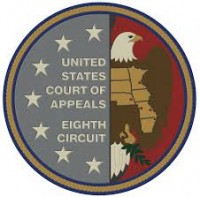 The U.S. Court of Appeals for the Eighth Circuit recently affirmed the dismissal of a federal Fair Debt Collection Practices Act (FDCPA) claim premised solely on the allegation that an affiant who swore to have personal knowledge of the facts did not, in fact, possess personal knowledge when he made the affidavit.
The U.S. Court of Appeals for the Eighth Circuit recently affirmed the dismissal of a federal Fair Debt Collection Practices Act (FDCPA) claim premised solely on the allegation that an affiant who swore to have personal knowledge of the facts did not, in fact, possess personal knowledge when he made the affidavit.
In reaching its decision the Court held that even if the affiant lacked “personal knowledge,” the plaintiff had not plausibly alleged that the content of the affidavit contained a false statement “in any meaningful way.”
A copy of the opinion in Janson v. Katharyn B. Davis, LLC is available at: Link to Opinion.
The plaintiff debtor was sued by his landlord in Missouri state court for unpaid rent. The law firm retained by the landlord filed an affidavit with the complaint, signed by a lawyer in the law firm. The affidavit recited information the lawyer received from the landlord. After a trial, judgment was entered against plaintiff debtor.
The plaintiff debtor subsequently sued the law firm alleging it violated the FDCPA because its attorney swore to an affidavit in the state court collection action without personal knowledge of the facts. The plaintiff argued that the filing of the affidavit was a “false, deceptive, or misleading representation” made in connection with collection of a debt in violation of 15 U.S.C. § 1692e, and that it used “unfair or unconscionable means” to collect a debt in violation of 15 U.S.C. § 1692f.
Litigants Not Misled, Deceived or Otherwise Duped by Contested Affidavit
Even if the lawyer’s attestation were literally false, the plaintiff debtor had not plausibly alleged that he or anyone else was misled by that falsehood. This is because the plaintiff did not allege that the substantive information contained in the affidavit, such as the amount due and owing, was false.
Instead, the Court noted, the plaintiff’s entire FDCPA claim was based upon the allegation that the affiant swore to having personal knowledge of the facts when in fact he did “not know whether the allegations are true or not.” But whether the affiant possessed personal knowledge was a technical, immaterial matter, referencing the concurring opinion in O’Rourke v. Palisades Acquisition XVI, LLC, 635 F.3d 938, 945 (7th Cir. 2011), which explained that “[i]f a statement would not mislead the unsophisticated consumer, it does not violate the FDCPA – even if it is false in some technical sense.”
So even if the affiant lacked personal knowledge, the material statements concerning the debt, such as the amount owed, were not alleged to be false or misleading. Absent an allegation that the nature, amount or status of the debt were false, the plaintiff failed to allege that the affidavit mislead anyone “in any meaningful way” and failed to state a claim for violation of the FDCPA.

